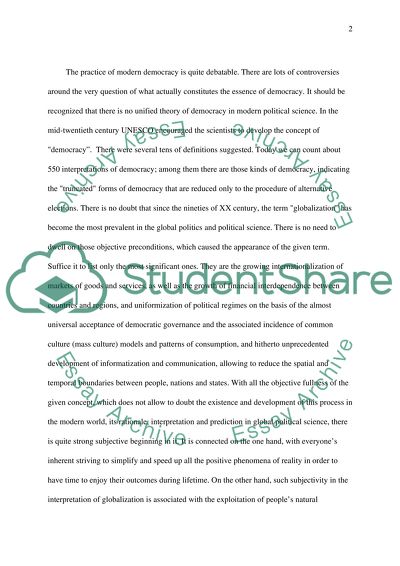Cite this document
(“Globalisation and Democracy Essay Example | Topics and Well Written Essays - 2000 words”, n.d.)
Retrieved from https://studentshare.org/environmental-studies/1419235-globalisation-and-democracy
Retrieved from https://studentshare.org/environmental-studies/1419235-globalisation-and-democracy
(Globalisation and Democracy Essay Example | Topics and Well Written Essays - 2000 Words)
https://studentshare.org/environmental-studies/1419235-globalisation-and-democracy.
https://studentshare.org/environmental-studies/1419235-globalisation-and-democracy.
“Globalisation and Democracy Essay Example | Topics and Well Written Essays - 2000 Words”, n.d. https://studentshare.org/environmental-studies/1419235-globalisation-and-democracy.


